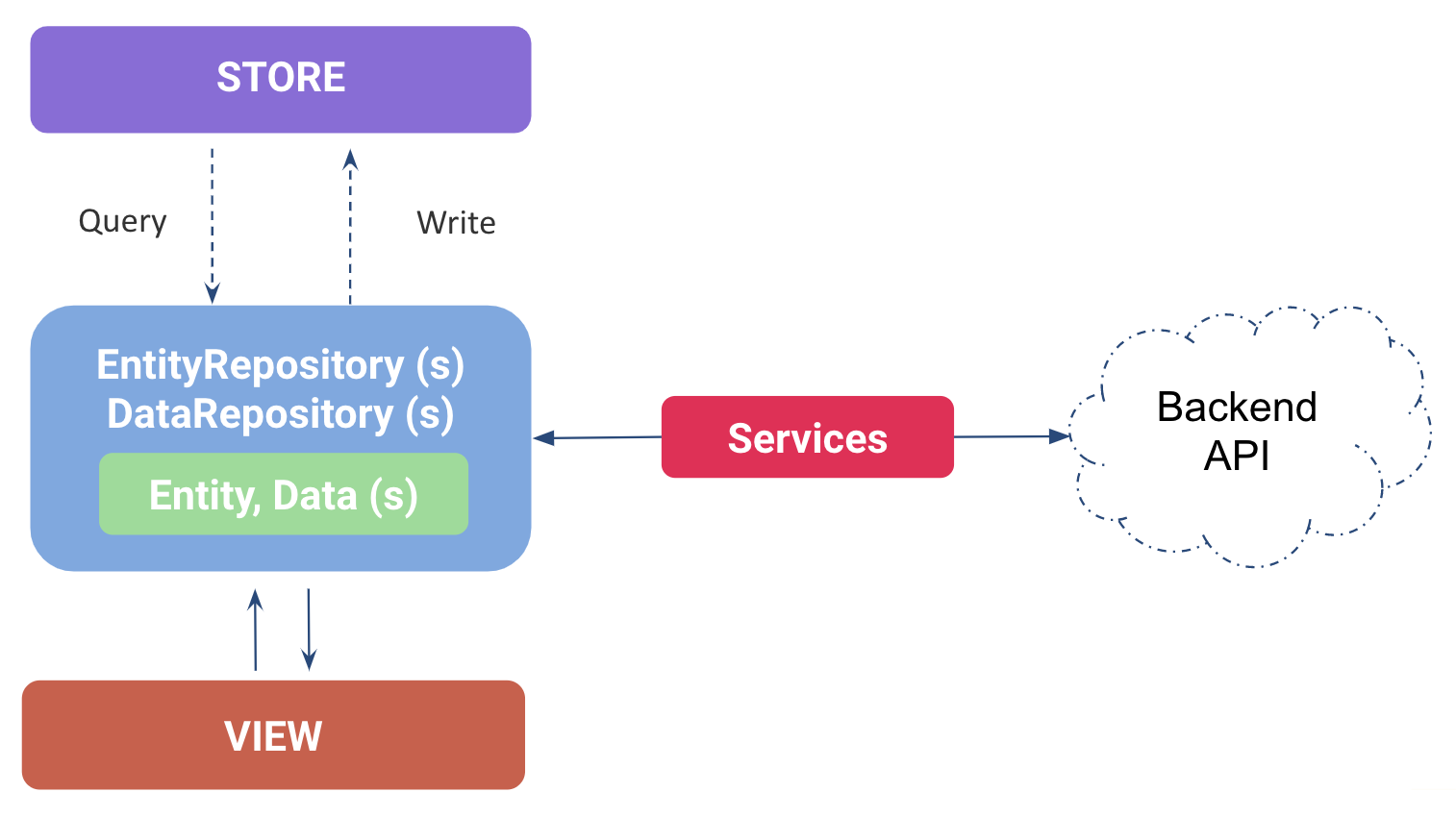
NGXS Persistence API (@ngxs-labs/data)
🚀 See it in action on Stackblitz
NGXS Persistence API is an extension based the Repository Design Pattern that offers a gentle introduction to NGXS by simplifying management of entities or plain data while reducing the amount of explicitness.
The main purpose of this extension is to provide the necessary layer of abstraction for states. Automates the creation of actions, dispatchers, and selectors for each entity type.
Benefits:
- Angular-way (
State as a Service) - Snapshot's from state out-of-the-box (
@Computed()) - Support debounce for throttling dispatch (
@Debounce()) - Simple manipulation with data from states (
NgxsDataRepository<T>) - Automatic type inference from selection data stream (
myState.state$) - Immutable state context out-of-the-box (
NgxsImmutableDataRepository<T>) - Entity adapter out-of-the-box (
NgxsDataEntityCollectionsRepository<V, K>) - Simple API for testing states (
ngxsTestingPlatform([A], (store: Store, a: A) => {...})) - Persistence state out-of-the-box in sessionStorage, localStorage, custom (
@Persistence()) - Automatic action naming by service methods for improved debugging (
@DataAction(), @Payload(), @Named())
Minimal peer dependencies:
- Require minimal
@ngxs/store v3.6.2 - Require minimal
TypeScript v3.7.2
If you are using Angular 8, you can write in the tsconfig.json:
{
"angularCompilerOptions": {
"disableTypeScriptVersionCheck": true
},
"compilerOptions": {}
} IE / Edge |
 Firefox |
 Chrome |
 Safari |
|---|---|---|---|
| Edge 12+ (IE + polyfills) | Firefox 42+ | Chrome 42+ | Safari 10+ |
- ✨ Learn about it on the docs
- 🚀 See it in action on Stackblitz
- 😎 Checkout the sample application
- 📝 Learn about updates from the changelog
Before
counter.state.ts
import { State, Action, StateContext } from '@ngxs/store';
export class Increment {
static readonly type = '[Counter] Increment';
}
export class Decrement {
static readonly type = '[Counter] Decrement';
}
@State<number>({
name: 'counter',
defaults: 0
})
export class CounterState {
@Action(Increment)
increment(ctx: StateContext<number>) {
ctx.setState(ctx.getState() + 1);
}
@Action(Decrement)
decrement(ctx: StateContext<number>) {
ctx.setState(ctx.getState() - 1);
}
}app.component.ts
import { Component } from '@angular/core';
import { Select, Store } from '@ngxs/store';
import { CounterState, Increment, Decrement } from './counter.state';
@Component({
selector: 'app-root',
template: `
<ng-container *ngIf="counter$ | async as counter">
<h1>{{ counter }}</h1>
</ng-container>
<button (click)="increment()">Increment</button>
<button (click)="decrement()">Decrement</button>
`
})
export class AppComponent {
@Select(CounterState) counter$: Observable<number>;
constructor(private store: Store) {}
increment() {
this.store.dispatch(new Increment());
}
decrement() {
this.store.dispatch(new Decrement());
}
}After
counter.state.ts
import { State } from '@ngxs/store';
import { DataAction, StateRepository } from '@ngxs-labs/data/decorators';
import { NgxsDataRepository } from '@ngxs-labs/data/repositories';
@StateRepository()
@State<number>({
name: 'counter',
defaults: 0
})
@Injectable()
export class CounterState extends NgxsDataRepository<number> {
@DataAction() increment() {
this.ctx.setState((state) => ++state);
}
@DataAction() decrement() {
this.ctx.setState((state) => --state);
}
}app.component.ts
import { Component } from '@angular/core';
import { CounterState } from './counter.state';
@Component({
selector: 'app-root',
template: `
<h1>{{ counter.snapshot }}</h1>
<button (click)="counter.increment()">Increment</button>
<button (click)="counter.decrement()">Decrement</button>
`
})
export class AppComponent {
constructor(counter: CounterState) {}
}
